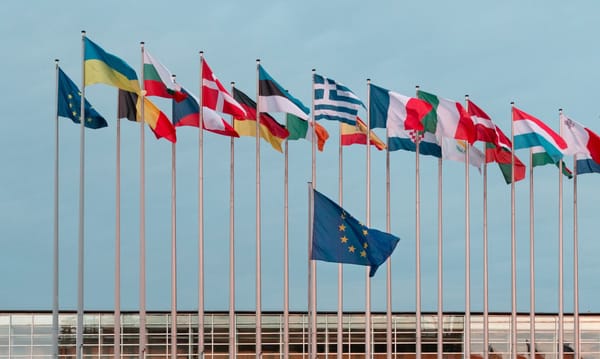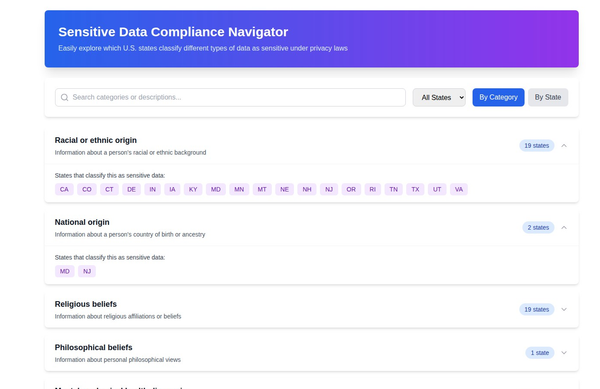Additional Stricter Data Protection Regulations in 2024

Introduction
Beyond the notable enhancements to GDPR, US state privacy laws, and Brazil’s LGPD, several other regions have introduced or strengthened their data protection regulations. These efforts aim to address emerging privacy challenges and ensure robust protection of personal data in an increasingly digital world. This section explores additional data protection regulations that have been established or significantly advanced in 2024.

Additional Stricter Data Protection Regulations
1. India’s Personal Data Protection Bill
- Overview: India has introduced the Personal Data Protection Bill (PDPB), which aims to protect the personal data of Indian citizens and regulate data processing activities.
- Key Features:
- Data Localization: Requires certain categories of personal data to be stored and processed within India.
- Consent Requirements: Emphasizes obtaining explicit consent from individuals before collecting and processing their data.
- Data Protection Authority (DPA): Establishes a DPA to oversee compliance and enforcement of the data protection laws.
2. China’s Personal Information Protection Law (PIPL)
- Overview: China’s PIPL provides comprehensive data protection regulations to safeguard personal information and enhance privacy rights.
- Key Features:
- Data Subject Rights: Grants individuals rights to access, correct, delete, and restrict the processing of their personal data.
- Cross-Border Data Transfers: Imposes strict conditions on the transfer of personal data outside China.
- Legal Basis for Processing: Requires a legal basis, such as consent or legitimate interest, for processing personal data.
3. South Africa’s Protection of Personal Information Act (POPIA)
- Overview: South Africa’s POPIA has been fully implemented to ensure the protection of personal information and promote privacy rights.
- Key Features:
- Information Officer: Requires organizations to appoint an Information Officer responsible for compliance with POPIA.
- Processing Limitations: Imposes limitations on the processing of personal data, ensuring it is collected for specific, lawful purposes.
- Data Subject Participation: Provides data subjects with rights to participate in the processing of their personal information.
4. Japan’s Act on the Protection of Personal Information (APPI)
- Overview: Japan has updated its APPI to enhance data protection measures and align with international standards.
- Key Features:
- Data Breach Notification: Mandates notification to data subjects and authorities in the event of a data breach.
- Anonymized Data: Establishes guidelines for the use and processing of anonymized data.
- Cross-Border Data Transfers: Requires adequate safeguards for the transfer of personal data to foreign countries.

5. New Zealand’s Privacy Act 2020
- Overview: New Zealand’s Privacy Act 2020 has introduced stricter data protection regulations to enhance privacy rights and ensure data security.
- Key Features:
- Privacy Breach Notification: Requires mandatory reporting of privacy breaches to the Privacy Commissioner and affected individuals.
- Stronger Enforcement Powers: Grants the Privacy Commissioner increased powers to enforce compliance and impose penalties.
- Data Minimization: Emphasizes the principle of data minimization, ensuring only necessary data is collected and processed.

6. South Korea’s Personal Information Protection Act (PIPA)
- Overview: South Korea has amended its PIPA to strengthen data protection measures and improve regulatory oversight.
- Key Features:
- Enhanced Data Subject Rights: Expands the rights of data subjects, including the right to data portability.
- Data Protection Officer (DPO): Mandates the appointment of a DPO for organizations processing large volumes of personal data.
- Stricter Consent Requirements: Requires more stringent consent mechanisms for the processing of personal information.

7. United Kingdom’s Data Protection Act (DPA) 2018
- Overview: The UK has updated its DPA 2018 to align with GDPR and address emerging data protection challenges post-Brexit.
- Key Features:
- Post-Brexit Data Transfers: Establishes guidelines for the transfer of personal data between the UK and EU/EEA post-Brexit.
- Automated Decision-Making: Provides additional safeguards for individuals subject to automated decision-making processes.
- Increased Fines: Enhances the regulatory authority's ability to impose significant fines for non-compliance with data protection laws.
8. Singapore’s Personal Data Protection Act (PDPA)
- Overview: Singapore has strengthened its PDPA to enhance data protection and ensure compliance with global standards.
- Key Features:
- Mandatory Data Breach Notification: Requires organizations to notify the Personal Data Protection Commission (PDPC) and affected individuals of data breaches.
- Data Portability: Introduces the right to data portability, allowing individuals to transfer their personal data between service providers.
- Increased Penalties: Imposes higher penalties for organizations that fail to comply with data protection regulations.

Conclusion
In 2024, the global regulatory landscape for data protection has seen significant advancements, with countries worldwide introducing stricter regulations to safeguard personal data and address emerging privacy challenges. These initiatives aim to enhance transparency, user consent, data minimization, and cross-border data transfer safeguards. By staying informed about these developments, businesses and organizations can ensure compliance with evolving data protection standards and maintain robust privacy practices.






